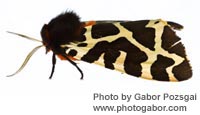 This page has been mothballed.
This page has been mothballed.
Editorial
(by Claire Souchet, Macaulay Land Use Research Institute)
The Thematic Network -Increased competitiveness of high quality European animal textile fibres by improving fibre quality (FAIR3 CT96 1597) - , is nearly at the end of its first year of existence and can be considered as well established. It is widely identified as the European Fine Fibre Network.
The partners have shown great interest in its activities, especially during the first workshop held in Spain in October. This workshop, on "Development of European standards for the objective measurement of genetic parameters, based on quantity and quality fibres traits" was hosted by Dr Koldo Osoro, in Villaviciosa, Spain, on the 10-11th October 1997. Forty participants were present; scientists and producers involved in cashmere, mohair, angora and fine wool fibres. The discussions were very fruitful and advances were made in term of standardising fibre measurements. A report, covering the papers presented and a summary of the discussions, is being prepared.
The round trial of fibre quality measurements using OFDA methodology, organised by Dr Ho Phan (DWI, Germany) for cashmere and mohair fibres, is well advanced. Results, to assist in demonstrating the value of the OFDA methodology, will be available early next year.
After the success of the first EFFN workshop, we hope that the second workshop, on "Establishment of common European protocols for the recording of genetic performance data for speciality fibre producing animals", will be as profitable. It will be held in France, on 9-10th March 1998, and will be hosted by Dr Daniel Allain, from INRA, Toulouse.
Finally, after the great response we had following the publication of the first issue of EFFN news, we hope that this second issue will arouse as much interest and we look forward to hearing further from those who will receive it. Those who have not been yet contacted and who would wish to participate to this network, should contact the network administrator, Ms Claire Souchet. This issue of the Newsletter concentrates particularly on the types of breeding programmes that currently exist in Europe.